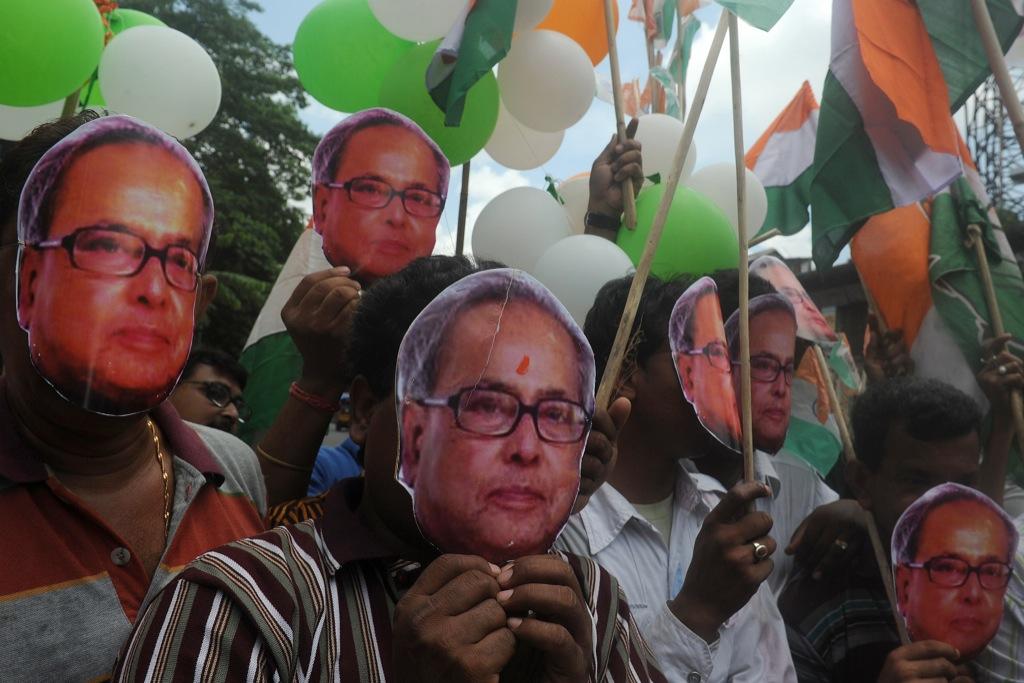India: New president targets “endemic” protests
Activists of India’s ruling Congress party wear face masks of India’s new President Pranab Mukherjee as they celebrate his coronation in Kolkata on July 25, 2012.
Credit India's new president with telling it like it is.
In his first major speech, newly appointed President Pranab Mukherjee lashed out at the neverending train of hunger strikes and protests against everything from corruption to affirmative action late Tuesday, saying that too much street democracy threatens to undermine the regular kind.
"When authority becomes authoritarian, democracy suffers; but when protest becomes endemic, we are flirting with chaos," Mukherjee said on the eve of India's 66th Independence Day, according to Outlook magazine.
"Democracy is a shared process," the president said. "We all win or lose together. Democratic temper calls for dignity of behaviour and tolerance of contrary views. Parliament will live by its own calendar and rhythm. Sometimes that rhythm sounds a bit atonal; but in a democracy there is always judgement day, an election. Parliament is the soul of the people, the "Atman" of India. We challenge its rights and duties at our peril."
Over the past several years, street protests have replaced lobbying and campaigning as the first step in any push for political change. Along with Anna Hazare's anti-corruption demonstrations, various caste groups have taken the streets to protest for and against quotas in jobs and education, and this weekend yoga guru Baba Ramdev again occupied the capital to rail against "black money" held abroad by politicians and other big wigs.
As Mukherjee puts it:
"Anger against the bitter pandemic of corruption is legitimate, as is the protest against this plague that is eroding the capability and potential of our nation. There are times when people lose their patience but it cannot become an excuse for an assault on our democratic institutions."
The idea that failing "democratic insitutions" are sacrosanct is problematic — and too often used as an excuse to avoid listening to the public's demands. But it's also true that protests don't make policy, and for the most part the failure to find any other way to engage the political system has prevented the protesters from making any headway — apart from promoting themselves as kingmakers or future candidates for political office.
For that reason, if no other, Indian activists should look for other means of engaging with their elected leaders, and give up their reticence about campaigning for posts of their own, or forming their own political parties.
Our coverage reaches millions each week, but only a small fraction of listeners contribute to sustain our program. We still need 224 more people to donate $100 or $10/monthly to unlock our $67,000 match. Will you help us get there today?
